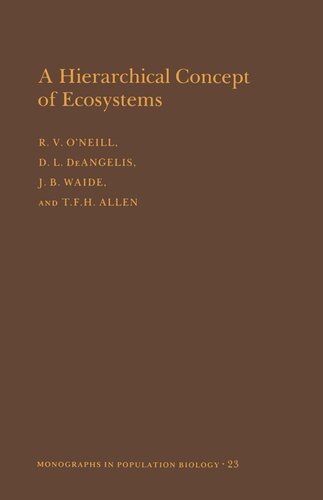

Most ebook files are in PDF format, so you can easily read them using various software such as Foxit Reader or directly on the Google Chrome browser.
Some ebook files are released by publishers in other formats such as .awz, .mobi, .epub, .fb2, etc. You may need to install specific software to read these formats on mobile/PC, such as Calibre.
Please read the tutorial at this link: https://ebookbell.com/faq
We offer FREE conversion to the popular formats you request; however, this may take some time. Therefore, right after payment, please email us, and we will try to provide the service as quickly as possible.
For some exceptional file formats or broken links (if any), please refrain from opening any disputes. Instead, email us first, and we will try to assist within a maximum of 6 hours.
EbookBell Team

0.0
0 reviews"Ecosystem" is an intuitively appealing concept to most ecologists, but, in spite of its widespread use, the term remains diffuse and ambiguous. The authors of this book argue that previous attempts to define the concept have been derived from particular viewpoints to the exclusion of others equally possible. They offer instead a more general line of thought based on hierarchy theory. Their contribution should help to counteract the present separation of subdisciplines in ecology and to bring functional and population/community ecologists closer to a common approach.
Developed as a way of understanding highly complex organized systems, hierarchy theory has at its center the idea that organization results from differences in process rates. To the authors the theory suggests an objective way of decomposing ecosystems into their component parts. The results thus obtained offer a rewarding method for integrating various schools of ecology.